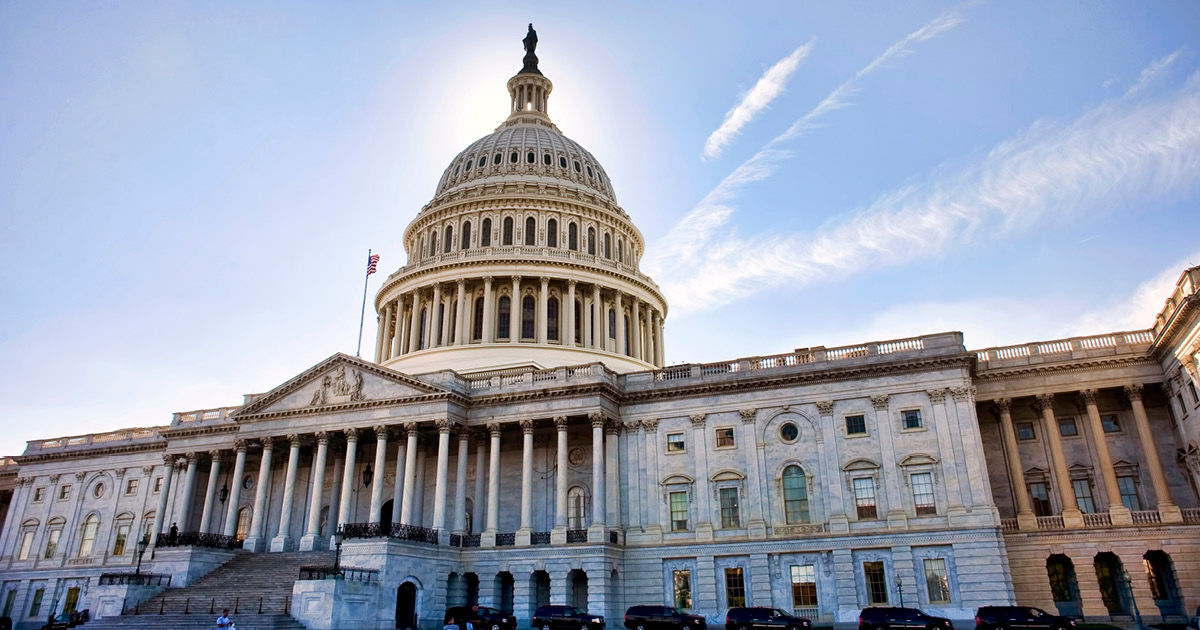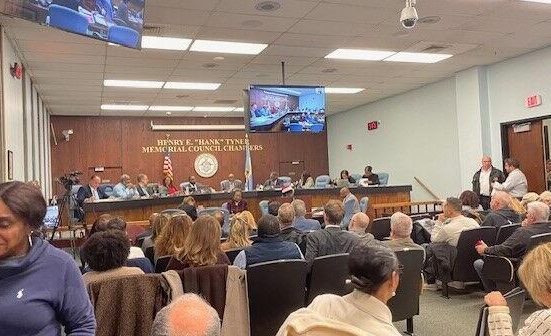The Senate Finance Committee on Monday released its version of proposed tax provisions to be included in the budget reconciliation bill being considered by Congress. The House of Representatives passed its version of the bill, H.R. 1, known as the One Big Beautiful Bill Act, in May. The Senate is considering its own version of the bill, which has to meet certain criteria to be exempt from the Senate’s filibuster rules and therefore eligible to be passed on a majority vote.
Many tax provisions in the Senate Finance Committee’s version of the bill are similar to tax provisions in the bill that passed the House. For example, like the House bill, the Senate bill would repeal various clean-energy credits and incentives that were enacted as part of the Inflation Reduction Act of 2022, P.L. 117-169.
Although the text of the proposed bill runs to 549 pages, the text is apparently not complete. One section of the bill is marked “reserved” — a section labeled “tax treatment of certain international entrepreneurs.” And while the Senate version of the bill retains the House bill’s provision creating Trump savings accounts, the Finance Committee says that “further refinements to the text included in the House-passed H.R. 1 with respect to the Trump accounts program continue to be developed and finalized in coordination with the Trump Administration.”
And although the bill retains the $10,000 state and local tax deduction limit (SALT cap), the Senate Finance Committee’s explanation of the bill says that “the amount of the individual SALT cap is the subject of continuing negotiations.”
Here’s a look at the key tax provisions in the Senate’s proposed legislative language that differ from the bill that passed the House.
Provisions for individuals
Tax rates: Like the House bill, the Senate bill would make permanent the tax rates enacted in 2017 in the Tax Cuts and Jobs Act (TCJA), P.L. 115-97. The bill would add an additional year of inflation adjustment to the 10%, 12%, and 22% individual tax brackets.
Standard deduction: Like the House bill, the Senate bill would make the TCJA’s increased standard deduction amounts permanent. For tax years beginning after 2025, the standard deduction would increase to $16,000 for single filers, $24,000 for heads of household, and $32,000 for married individuals filing jointly. The standard deduction would be adjusted for inflation after that.
Personal exemptions and senior deduction: Like the House bill, the Senate bill would permanently set the deduction for personal exemptions at zero. The Senate bill would provide a temporary $6,000 deduction for individual taxpayers who are age 65 or older. The House bill provided a temporary $4,000 “senior bonus” deduction for those individuals. The Senate’s senior deduction would begin to phase out when a taxpayer’s modified adjusted gross income (MAGI) exceeds $75,000 ($150,000 in the case of a joint return). It would be in effect for the years 2025 through 2028.
SALT cap: The current law caps an individual’s state and local tax deduction at $10,000. The House bill originally would have increased that to $30,000; however, the manager’s amendment approved by the House increased the cap to $40,000 per household ($20,000 for married taxpayers filing separately) starting in 2025. The Senate version of the bill would retain the current $10,000 cap, but, as noted above, this provision is still being negotiated. The Senate bill would also implement changes to prevent taxpayers from avoiding the SALT cap.
The bill would provide a list of taxes subject to the SALT cap (“specified taxes” and passthrough entity taxes (PTETs)) and a list of taxes not subject to a SALT cap (“excepted taxes”). It would provide that certain payments that substitute for specified taxes are also subject to the SALT cap, and it would require partnerships and S corporations to treat specified taxes and PTETs as separately stated items. The bill would impose an addition to tax in certain cases where a partnership makes a state or local tax payment, one or more partners receive a state or local tax benefit, and the allocation of the tax payment differs from the allocation of the tax benefit. It would prevent the capitalization of specified taxes and would grant Treasury authority to issue regulations to prevent avoidance of the SALT cap.
The House bill also included a provision that would have barred owners of specified trades or businesses (SSTBs) (borrowing the definition from the qualified business income (QBI) deduction under Sec. 199A) from claiming any deduction for PTETs. The Senate version does not include the same provision. Rather, it limits all passthrough entity owners’ PTET SALT deduction to the unused portion of their SALT deduction plus the greater of $40,000 of their allocation of the PTET or 50% of their allocation of the PTET.
In reaction to the House bill’s version of this measure, AICPA President and CEO Mark Koziel, CPA, CGMA, called the PTET changes “unfair” to affected passthrough businesses, including accounting firms.
Child tax credit: The Senate bill would increase the amount of the nonrefundable child tax credit to $2,200 per child beginning in 2025 (a different amount from the House bill) and would index the credit amount for inflation. The bill would also make permanent the $1,400 refundable child tax credit, adjusted for inflation. It would also make permanent the increased income phaseout threshold amounts of $200,000 ($400,000 in the case of a joint return), as well as the $500 nonrefundable credit for each dependent of the taxpayer other than a qualifying child.
QBI deduction: TheSenate bill would make the Sec. 199A deduction for QBI permanent. It would expand the Sec. 199A deduction limit phase-in range for SSTBs and other entities subject to the wage and investment limitation by increasing the $50,000 amount for non-joint returns to $75,000 and the $100,000 amount for joint returns to $150,000.
The bill would also introduce an inflation-adjusted minimum deduction of $400 for taxpayers who have at least $1,000 of QBI from one or more active trades or businesses in which they materially participate.
The House bill would raise the QBI deduction rate from 20% to 23%. The Senate would keep the rate at 20%.
Estate and gift tax exemption amounts: The Senate bill would permanently increase the estate tax exemption and lifetime gift tax exemption amounts to $15 million for single filers ($30 million for married filing jointly) in 2026 and index the exemption amount for inflation after that.
Alternative minimum tax exemption: The Senate bill would permanently extend the TCJA’s increased individual alternative minimum tax exemption amounts and revert the exemption phaseout thresholds to their 2018 levels of $500,000 ($1 million in the case of a joint return), indexed for inflation.
Mortgage interest deduction: The Senate bill would permanently extend the TCJA’s provision limiting the Sec. 163 qualified residence interest deduction to the first $750,000 in home mortgage acquisition debt. It would also make permanent the exclusion of interest on home-equity indebtedness from the definition of qualified residence interest. The Senate bill would also treat certain mortgage insurance premiums on acquisition indebtedness as qualified residence interest.
Casualty loss deductions: Under the Senate bill, the TCJA’s provision limiting the itemized deduction for personal casualty losses to losses resulting from federally declared disasters would become permanent, but the bill would expand the provision to include certain state-declared disasters.
Miscellaneous itemized deductions: The Senate bill would make permanent the TCJA’s suspension of the Sec. 67(g) deduction for miscellaneous itemized deductions but would remove unreimbursed employee expenses for eligible educators from the list of miscellaneous itemized deductions.
Itemized deductions limitation: The bill would permanently remove the Sec. 68 overall limitation on itemized deductions (known as the Pease limitation) and replace it with a new overall limitation on the tax benefit of itemized deductions. For individual taxpayers in the highest tax bracket, the provision would cap the value of each dollar of otherwise allowable itemized deductions at 35 cents.
Wagering losses: The Senate bill would amend Sec. 165(d) to clarify that the term “losses from wagering transactions” includes any deduction otherwise allowable under Chapter 1 of the Code incurred in carrying on any wagering transactions. The bill would limit the term “losses from wagering transactions” to 90% of the amount of those losses, and losses would be deductible only to the extent of the taxpayer’s gains from wagering transactions during the tax year.
No tax on tips: The Senate bill would provide a deduction of up to $25,000 for qualified tips received by an individual in an occupation that customarily and regularly receives tips. The deduction would be allowed for both employees receiving a Form W-2, Wage and Tax Statement, and independent contractors who receive Form 1099-K, Payment Card and Third Party Network Transactions, or Form 1099-NEC, Nonemployee Compensation, or who report tips on Form 4317, Social Security and Medicare Tax on Unreported Tip Income. The deduction would be an above-the-line deduction and, therefore, available for taxpayers who claim the standard deduction or itemize deductions. The deduction would begin to phase out when the taxpayer’s MAGI exceeds $150,000 ($300,000 in the case of a joint return). This temporary deduction would be available for tax years 2025 through 2028. A transition rule would allow employers required to furnish statements enumerating an individual’s tips for tax year 2025 to use “any reasonable method” to estimate designated tip amounts.
No tax on overtime: The Senate bill would provide an above-the-line deduction of up to $12,500 ($25,000 in the case of a joint return) for qualified overtime compensation received by an individual during a given tax year. The deduction would begin to phase out when the taxpayer’s MAGI exceeds $150,000 ($300,000 in the case of a joint return). The bill defines qualified overtime compensation as overtime compensation paid to an individual required under Section 7 of the Fair Labor Standards Act of 1938that is in excess of the regular rate (as used in that section) at which the individual is employed. Overtime deductions would only be allowed for qualified overtime compensation if the total amount of qualified overtime compensation is reported separately on Form W-2. This temporary deduction would be available for tax years 2025 through 2028.
Child and dependent care credit: The Senate bill would permanently increase the amount of the child and dependent care tax credit from 35% to 50% of qualifying expenses. The credit rate would phase down for taxpayers with adjusted gross income over $15,000.
Sec. 529 plans: The Senate bill would allow tax-exempt distributions from Sec. 529 savings plans to be used for additional educational expenses in connection with enrollment or attendance at an elementary or secondary school. The bill would also allow tax-exempt distributions from 529 savings plans to be used for additional qualified higher education expenses, including “qualified postsecondary credentialing expenses.”
Charitable contribution deduction: The Senate bill would create a charitable contribution deduction for taxpayers who do not elect to itemize, allowing nonitemizers to claim a deduction of up to $1,000 for single filers or $2,000 for married taxpayers filing jointly for certain charitable contributions. For itemizers, the bill would impose a 0.5% floor on the charitable contribution deduction: The amount of an individual’s charitable contributions for a tax year is reduced by 0.5% of the taxpayer’s contribution base for the tax year. For corporations, the floor would be 1% of the corporation’s taxable income (up to the current 10% limit).
Business provisions
Bonus depreciation: The Senate bill would permanently extend the Sec. 168 additional first-year (bonus) depreciation deduction. The allowance would be increased to 100% for property acquired and placed in service on or after Jan. 19, 2025, as well as for specified plants planted or grafted on or after Jan. 19, 2025. The House bill would have implemented 100% bonus depreciation from Jan. 19, 2025, through the end of 2029.
Sec. 179 expensing: The Senate bill would increase the maximum amount a taxpayer may expense under Sec. 179 to $2.5 million, reduced by the amount by which the cost of qualifying property exceeds $4 million.
Research-and-development expenses: The Senate bill would allow taxpayers to immediately deduct domestic research or experimental expenditures paid or incurred in tax years beginning after Dec. 31, 2024. However, research or experimental expenditures attributable to research that is conducted outside the United States would continue to be required to be capitalized and amortized over 15 years under Sec. 174.
Small business taxpayers with average annual gross receipts of $31 million or less would generally be permitted to apply this change retroactively to tax years beginning after Dec. 31, 2021. And all taxpayers that made domestic research or experimental expenditures after Dec. 31, 2021, and before Jan. 1, 2025, would be permitted to elect to accelerate the remaining deductions for those expenditures over a one- or two-year period.
Limitation on business interest: The Senate bill would reinstate the EBITDA limitation under Sec. 163(j) for tax years beginning after Dec. 31, 2024. Therefore, for purposes of the Sec. 163(j) interest deduction limitation for these years, adjusted taxable income would be computed without regard to the deduction for depreciation, amortization, or depletion. The bill would also modify the definition of “motor vehicle” to allow interest on floor plan financing for certain trailers and campers to be deductible.
Special depreciation allowance for qualified production property: The Senate bill would allow an additional first-year depreciation deduction equal to 100% of the adjusted basis of “qualified production property.” Qualified production property is generally nonresidential real property used in manufacturing.
Advanced manufacturing investment credit: Under the Senate bill, the advanced manufacturing investment credit rate would increase from 25% to 30%, effective for property placed in service after Dec. 31, 2025.
Employer-provided child care credit: The Senate bill would increase the Sec. 45F employer-provided child care credit from $150,000 to $500,000 and the percentage of qualified child care expenses from 25% to 40%. The rate would be 50% for qualifying small businesses (meeting the gross-receipts test under Sec. 448(c) using a five-year, rather than a three-year, average of gross receipts).
Opportunity zones: The Senate bill would make opportunity zones permanent but with several changes, including narrowing the definition of “low-income community.” The changes would take effect Jan. 1, 2027.
International provisions
Foreign tax credit: The Senate bill would limit the deductions of a U.S. shareholder allocable to income in the global intangible low-tax income (GILTI) category when determining its foreign tax credit limitation. It would also modify the determination of deemed paid credit for taxes properly attributable to tested income and change the rules for sourcing certain income from the sale of inventory produced in the United States.
GILTI and FDII: The Senate bill would decrease the Sec. 250 deduction percentage for tax years beginning after Dec. 31, 2025, to 33.34% for foreign-derived intangible income (FDII) and 40% for GILTI, resulting in an effective tax rate of 14% for both FDII and GILTI. The bill also proposes changing the definition of deduction-eligible income for purposes of determining FDII. The bill would also eliminate the use of a corporation’s deemed tangible income return for determining FDII and the use of net deemed tangible income return in determining GILTI. These changes would then result in the elimination of the terms FDII and GILTI, which would be renamed “foreign-derived deduction eligible income” and “net CFC tested income,” respectively.
BEAT: The Senate bill would make various changes to the current base-erosion and anti-abuse tax (BEAT). These changes would include adjustments to the calculation of the base-erosion minimum tax amount, exempting certain payments that are subject to sufficient foreign income tax from treatment as base-erosion payments, and reducing the base-erosion percentage threshold from 3% to 2%.
Business interest limitation: The Senate bill would provide that the Sec. 163(j) business interest limitation would be calculated prior to the application of any interest capitalization provision. The bill would also exclude Subpart F and GILTI inclusions and the associated Sec. 78 gross-up amounts, as well as amounts determined under Sec. 956, from a taxpayer’s adjusted taxable income for purposes of Sec. 163(j).
Unfair foreign taxes: The Senate bill would impose increased rates of tax (up to 15%) on certain affected taxpayers connected to countries that are deemed to impose unfair foreign taxes. The affected taxpayers would include foreign governments, resident individuals, resident corporations, resident foreign private foundations, and entities owned by such persons. The bill would also subject certain domestic entities owned by a tax resident of an offending foreign country to certain modifications to the BEAT that would expand the scope of entities subject to the BEAT.
Administrative changes
Employee retention credit enforcement: The Senate bill would require employee retention credit (ERC) promoters to comply with due diligence requirements with respect to a taxpayer’s eligibility for (or the amount of) an ERC. The bill would apply a $1,000 penalty for each failure to comply. It would also extend the penalty for excessive refund claims to employment tax refund claims. It would also prevent the IRS from issuing any additional unpaid claims under Sec. 3134, unless a claim for a credit or refund was filed on or before Jan. 31, 2024.
Earned income tax credit: The Senate bill would create a new earned income tax credit (EITC) certification program for tax years after 2027 (with transition rules beginning in 2024) to allow the IRS to detect and manage duplicative EITC claims.
— Alistair M. Nevius, J.D., is a freelance writer in North Carolina. To comment on this article or to suggest an idea for another article, contact Neil Amato at Neil.Amato@aicpa-cima.com.
Updates on individual tax and business tax are among the many topics on the agenda at the AICPA & CIMA National Tax Conference, Nov. 17–18 in Washington, D.C., and online.







